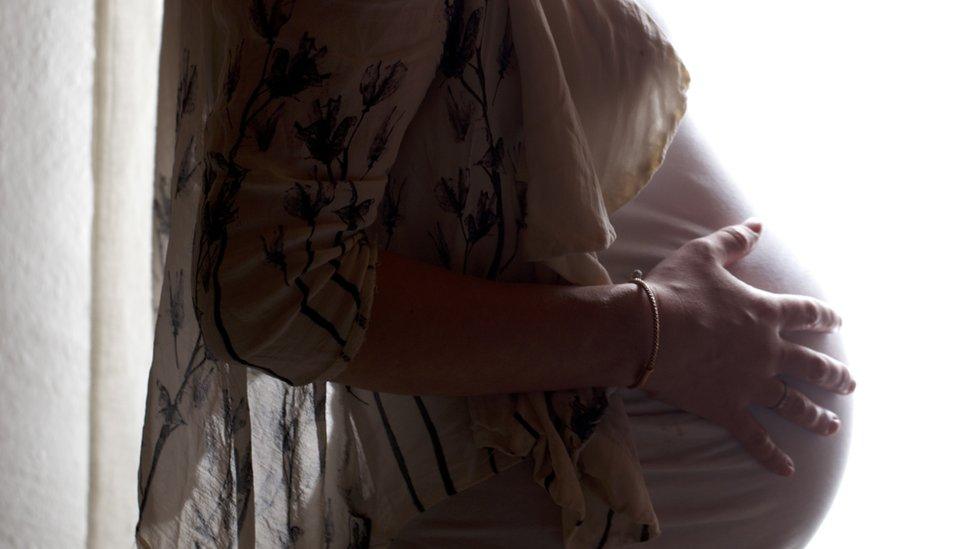Why are black mothers at more risk of dying?
- Published
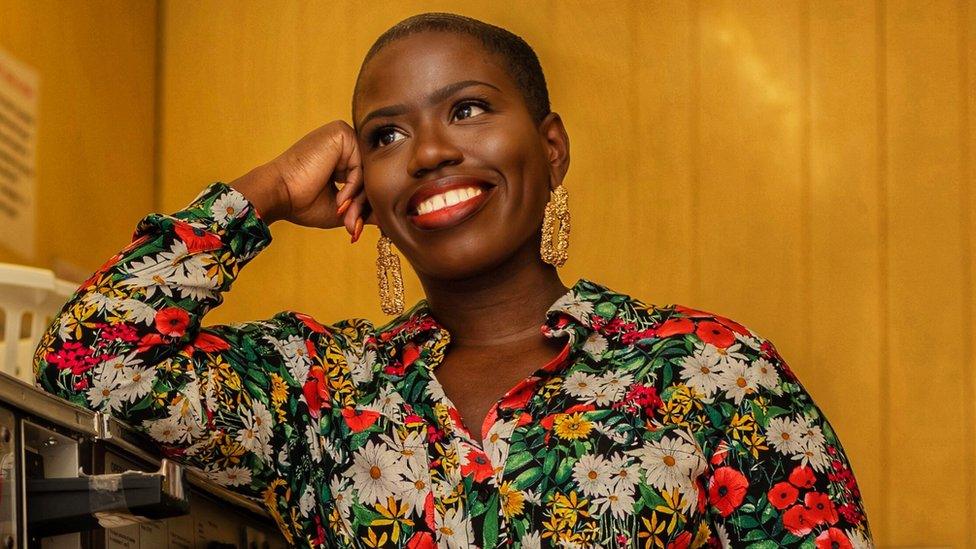
Candice Brathwaite shared her birth story to highlight the risks black women face
Black women in the UK are much more likely to die from complications surrounding pregnancy and childbirth than white women. But for many, the report into these maternal deaths and its stark figures only confirmed what they already knew - being black and pregnant carries more risk.
Death in pregnancy and childbirth is rare. But according to one report, there is a proportionally higher risk to black women than white.
The chance of death is 1 in 2,500 for black women according to the UK Confidential Enquiry into Maternal Deaths, external. But the rate was five times smaller for white women between 2014 and 2016.
The striking figures prompted a warning from the report's author: "The almost fivefold higher mortality rate amongst black women compared with white women requires urgent explanation and action."
But why is this happening?
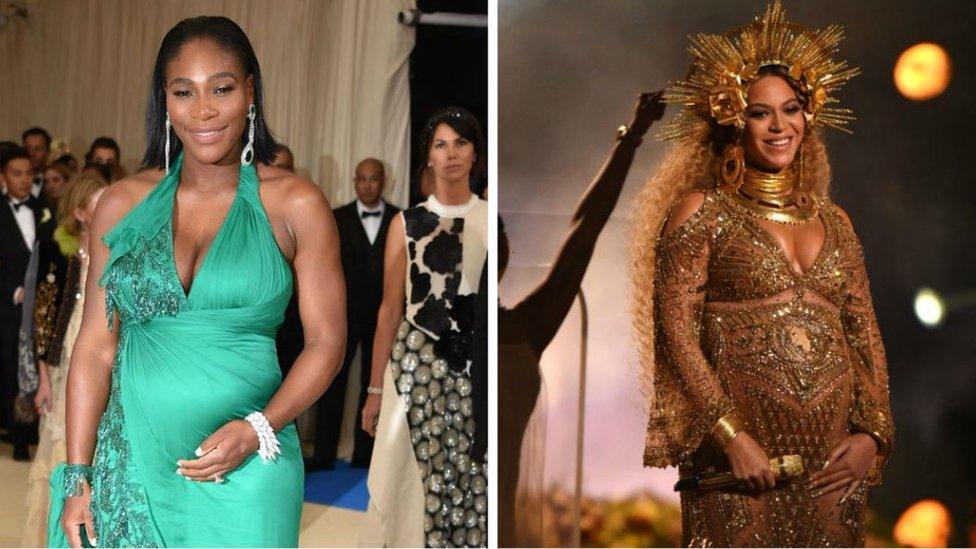
Serena Williams and Beyoncé have both talked about the trauma of childbirth
High profile black women such as Serena Williams and Beyoncé, external have highlighted the difficulties experienced by black women during pregnancy and childbirth.
The singer wrote about her preeclampsia, external - which black women have a higher risk of developing , external- while the tennis star said she was lucky to survive a "slew of health complications", external around the birth of her daughter.
Williams said she felt grateful to have had access to an "incredible medical team of doctors and nurses at a hospital with state-of-the-art equipment" but that black women in the United States were often not so lucky - comments that sparked debate in the media, external.
Indeed, in the US the rate of pregnancy-related deaths among black women is three to four times higher than among white women. While social factors could be behind some of the figures, one report, external found black middle-class women were more likely to die in childbirth than white working-class women.
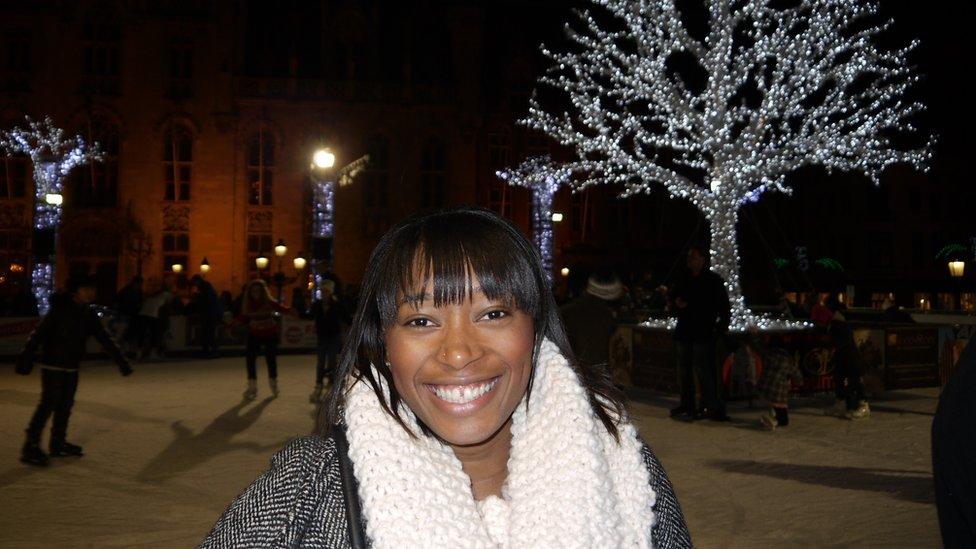
Dr Ria Clarke said the report left her with more questions than answers
The report says the figures are partly explained by health complications experienced by black women. But it also pointed to other factors, including the inadequate use of antenatal care.
Dr Ria Clarke, who is working towards becoming a consultant in obstetrics and gynaecology, told the Pregnant Then Screwed conference in January that black and Asian women were more likely to be affected by social and economic problems.
"We know there are medical reasons," she added. "We [also] know if you have an unsuitable working and living situation, if you live in poor housing, which impacts on health and outcomes, you can see how that might impact on mortality."
But she said this might not be the full picture.
"We need to talk about the fact black women may not feel that they will be taken seriously, which might make them less likely to disclose how they are feeling.
"This is urgent because women are dying and if it's not racial bias we need to know why [it is happening]."
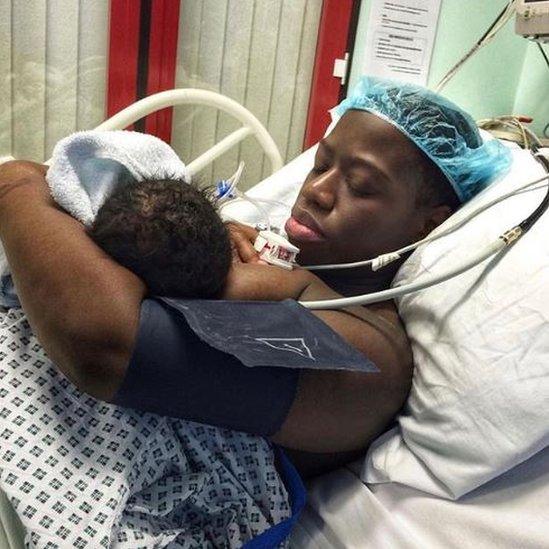
Candice Brathwaite shared this photo on Make Birth Better's Instagram page to share her birth experience as a black mother

Candice Brathwaite believes she was the victim of racial bias around the time she gave birth to her daughter.
She says she was treated differently to mothers in the same position as her who were of a different race, and that expectant white mothers "seemed to be listened to in more depth and with a sense of empathy" - an approach which she says was missing from her care.
When she told staff she felt "worse than I should" after a Caesarean, she felt her concerns weren't listened to, something she thinks could be down to racial bias within the NHS.
"I was told, 'you're over-thinking it, it's your first kid. [Later], I was told 'we're taking you into theatre or you won't be here tomorrow'," she said, after returning to hospital with septicaemia hours after being discharged.
"I was so exhausted all I could do was laugh and say, 'I told you I didn't feel great'.
"Health trusts need to admit there is racial bias. There needs to be better training so people can say 'am I responding to this person differently and why is that?'"
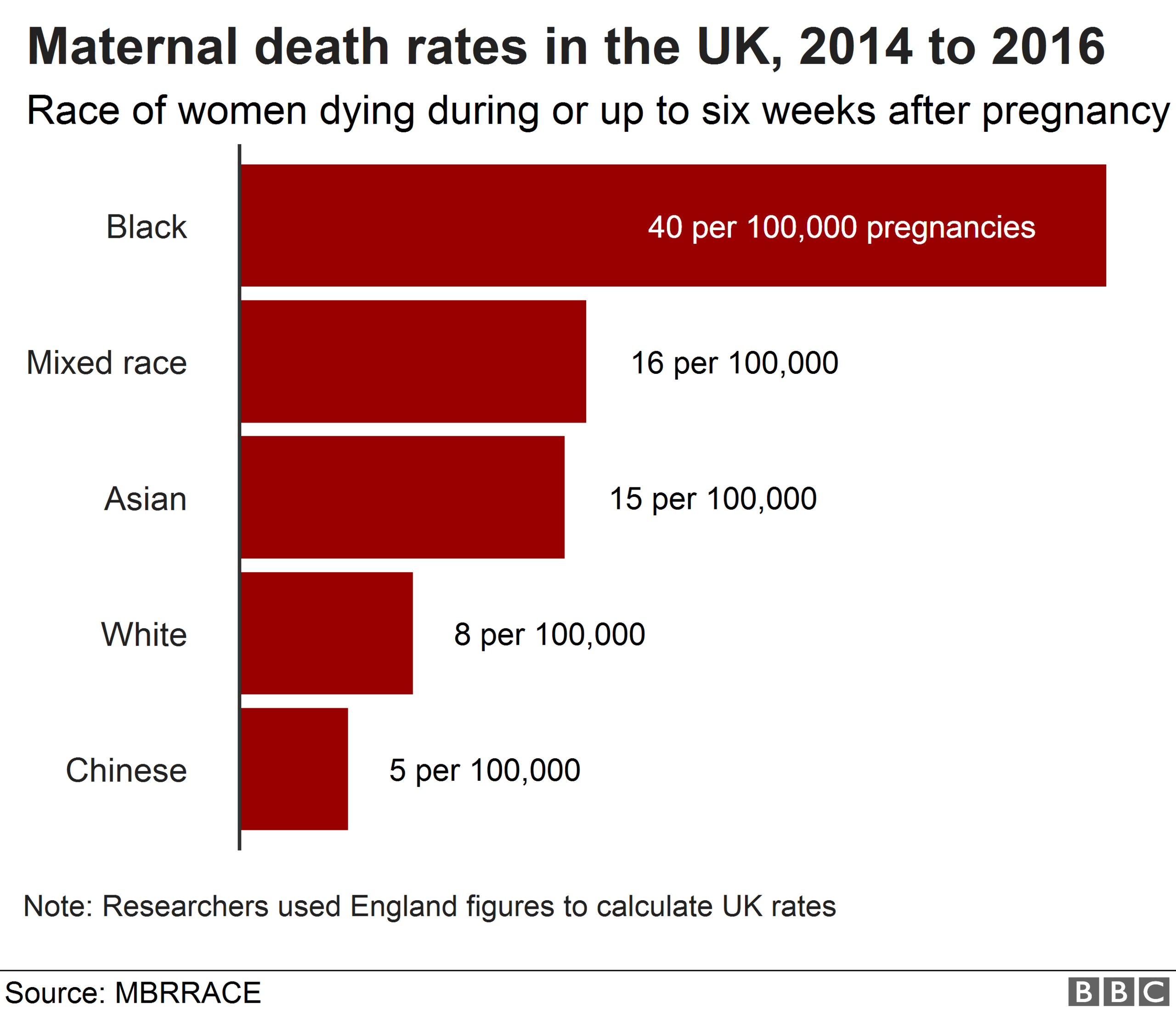
The mum of two shared her story in a bid to open up the conversation around birth and race following the report and said that "every time I share my story other black women share their story with me".
In an Instagram post, she said the data confirmed what she and countless other black women had long thought - that their concerns and fears were often ignored.
"For so long, black women in the UK have had to lean on the statistics of the US to help validate their own stories of pregnancy and childbirth," she wrote, external.
"Black women now have the data to sit alongside what we already knew."

You might also be interested in:

Mars Lord, a doula, external who supports women through childbirth, said one of the problems is that conversations about racial bias in maternity care are "often shut down" by those who feel uncomfortable with the suggestion it exists.
"It's not enough to jump up and give your non-racist credentials, you need to be anti-racist," she says.
"We're going to have to have an uncomfortable conversation about race and the systemic racism in society."
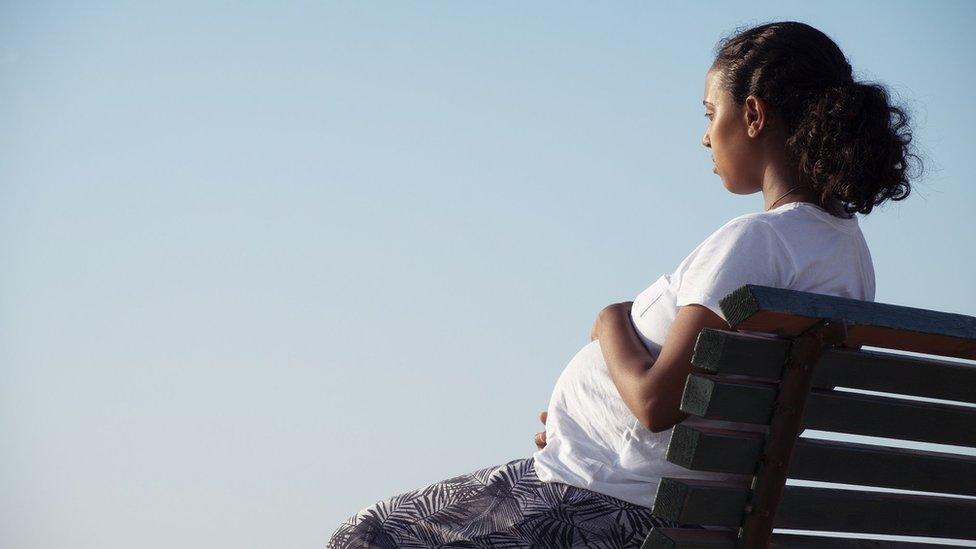
The reasons behind the UK's higher black maternal death rate are being investigated by the NHS
Dr Clarke believes other factors are at play, including culture and the narrative of the "strong black woman", which prevent some from speaking up about their concerns during pregnancy and birth.
Mrs Brathwaite, who has founded a social media campaign called Make Motherhood Diverse to highlight stories from mothers from a range of different backgrounds, agrees.
She says her grandparents' generation keeps quiet about pain and trauma and this affects how some black women are treated - even by women of their own race.
"There's a belief that black women feel less pain," she says. "A lot of older black women have this belief that our backs don't break, so black midwives would tell me to calm down."
The reasons behind the UK's higher black maternal death rate are being investigated by the NHS.
A follow-up report will be led by the National Perinatal Epidemiology Unit, which said it hoped to "identify clear ways to reduce the disparity in mortality amongst black and Asian women".
NHS England said women would now see the same one or two midwives throughout their contact with health services.
"By 2024, 75% of women from black, Asian and minority ethnic (BAME) communities and a similar percentage of women from the most deprived groups will receive continuity of care from their midwife throughout pregnancy, labour and the postnatal period.
"This will help reduce pre-term births, hospital admissions, the need for intervention during labour, and women's experience of care."
The Royal College of Obstetricians and Gynaecologists is calling for a national strategy around women's health as a matter of urgency.
"We know inequalities make it difficult for women - particularly those from [BAME] backgrounds - to access health services," said its president, Prof Lesley Regan.
"Every death is one too many and leaves devastated families without a mother.
"This is why we are calling for a national women's health strategy to ensure improvements are supporting women, regardless of where they were born or their background."
- Published4 February 2019
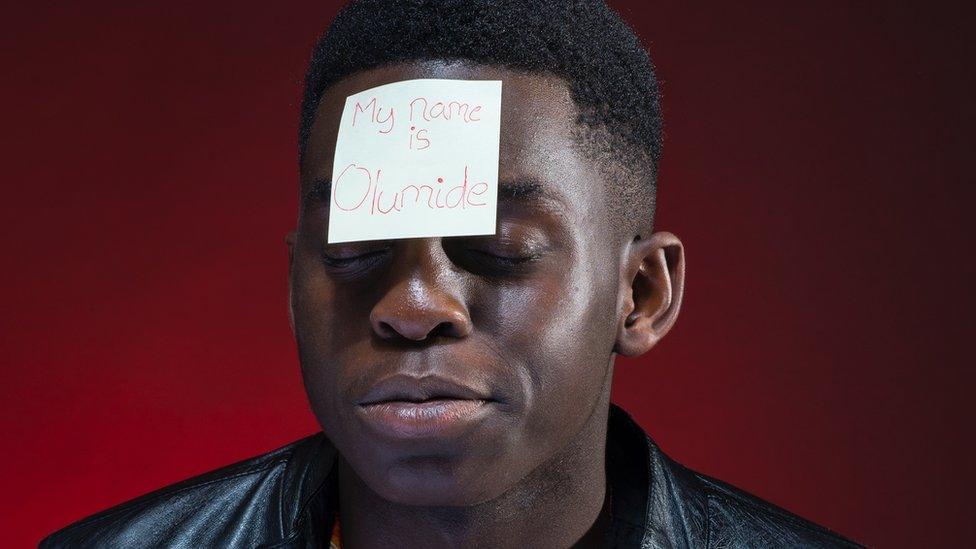
- Published31 January 2019
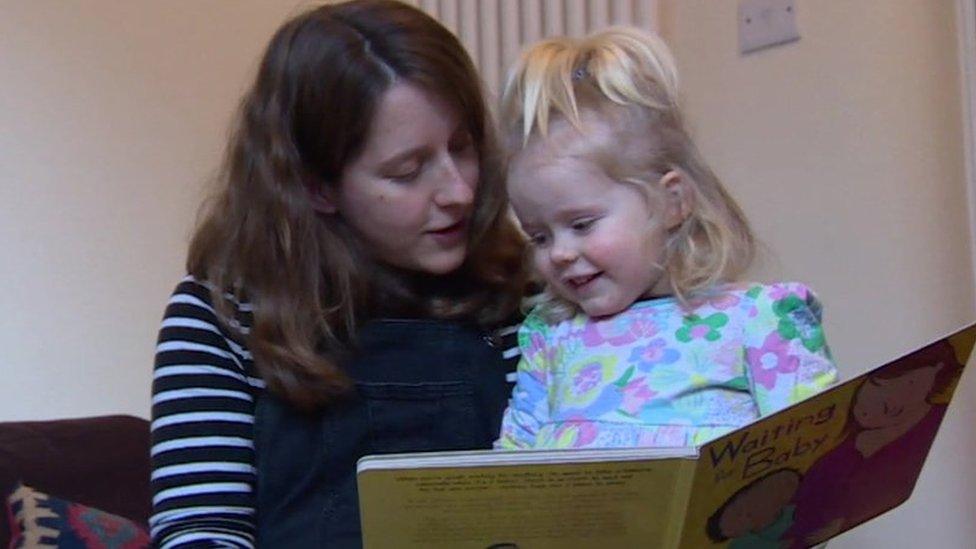
- Published29 November 2018
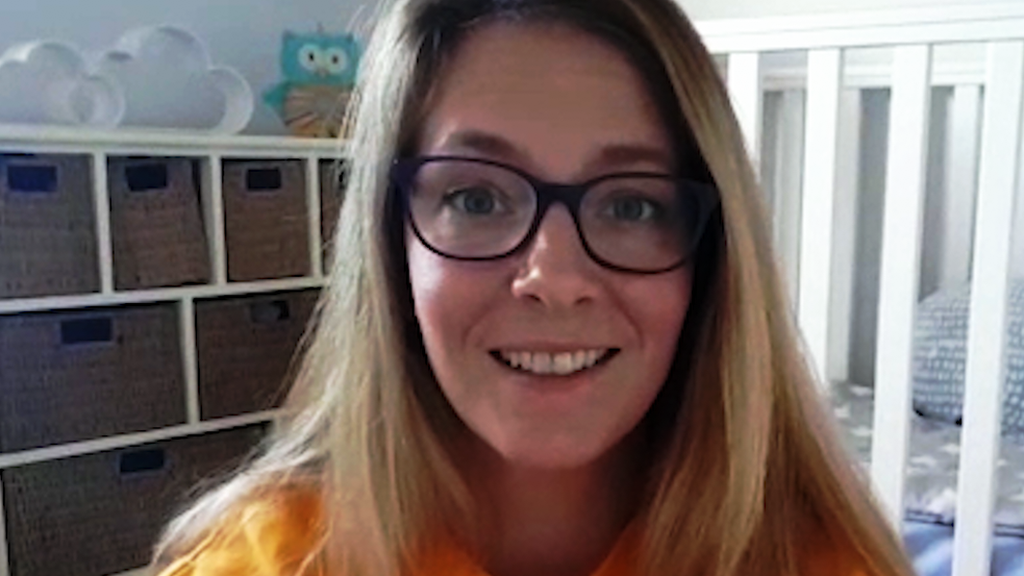
- Published19 November 2015
